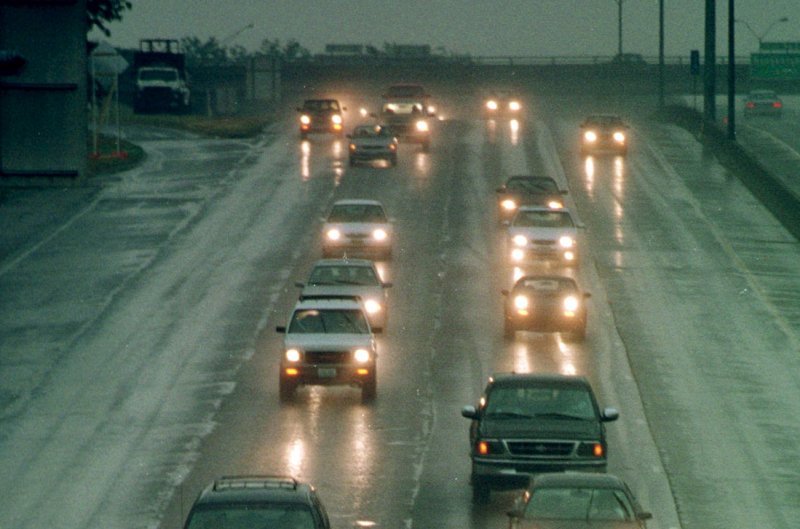AAA said that vehicles' automated safety systems are useful, but emphasized that they're no substitute for human operational awareness when driving. File Photo by Bill Greenblatt/UPI |
License Photo
Oct. 14 (UPI) -- Industry experts said in a report Thursday that American drivers should not become too reliant on automatic safety systems in modern vehicles during bad weather, like heavy rain, after studies showed that they sometimes aren't enough on their own to prevent crashes.
AAA said in its report that systems like automatic braking and lane assist systems often failed in tests.
Those experiments showed that heavy rain has the greatest effect on automatic systems -- and that vehicle collisions occurred with auto braking systems about a third of the time in wet conditions, and lane assist systems failed almost 70% of the time.
The failures with the braking systems found that they were unable to stop before hitting a parked car even though the vehicle was traveling just 35 mph.
The safety features, known as advanced driver assistance systems, are normally tested under ideal driving conditions and not in inclement weather.
"Vehicle systems rely on sensors and cameras to see road markings, other cars, pedestrians and roadway obstacles. So naturally, they are more vulnerable to environmental factors like rain," AAA engineering and industry relations chief Greg Brannon said in a statement.
"The reality is people aren't always driving around in perfect, sunny weather so we must expand testing and take into consideration things people actually contend with in their day-to-day driving."
AAA acknowledges that the safety systems are useful, but emphasized that they're not to be used as a total replacement for human operational awareness.
"AAA's advice to consumers that have advanced safety systems ... is to drive the car like the system is not there," Brannon told ABC News.
"Select a car that has the most advanced safety systems available, because they all hold a lot of potential to reduce injury and save lives, and that's a good thing."
AAA notes several recommendations for drivers in heavy rain, including making sure the windshield wipers are working properly, avoiding hard braking, keeping a distance of 5 to 6 seconds behind the car in front and avoid using cruise control in wet and slippery conditions.
"[We recognize] these systems have the ability to lessen the chance of a crash and improve the overall safety of driving," Brannon added. "Fine-tuning their performance and providing drivers with a more consistent experience will go a long way in unlocking their true potential."















